Drawing inspiration from the International Campaign to Ban Landmines — which spurred 164 nations to sign an international treaty banning the production, use, and stockpiling of landmines — and the Treaty on the Prohibition of Nuclear Weapons, the Fossil Fuel Non-Proliferation Treaty Initiative seeks to foster international cooperation. Its goal is to halt the expansion of oil, gas, and coal, phase out their existing production, and accelerate a fair and equitable transition to a fossil-free future. CIEL is a founding member and serves on the steering committee for the treaty. This initiative has gained tremendous support worldwide from a growing number of governments, parliamentarians, health professionals, Nobel Laureates, civil society organizations, and individuals. They all recognize the urgency of ending the fossil fuel era rapidly and equitably, while ensuring the well-being of workers, communities, and countries that rely on fossil fuels to create secure and healthy livelihoods.
Impact Stories
Funding for Climate Loss and Damage
From massive wildfires in Canada and devastating floods in Pakistan, to persistent drought in the Horn of Africa and intense heat in Asia and Europe, the climate crisis is already taking a deadly and costly toll. Unfortunately, the countries and communities that have done the very least to contribute to global temperature rise are the ones facing the most serious impacts on their rights, lives, and livelihoods.
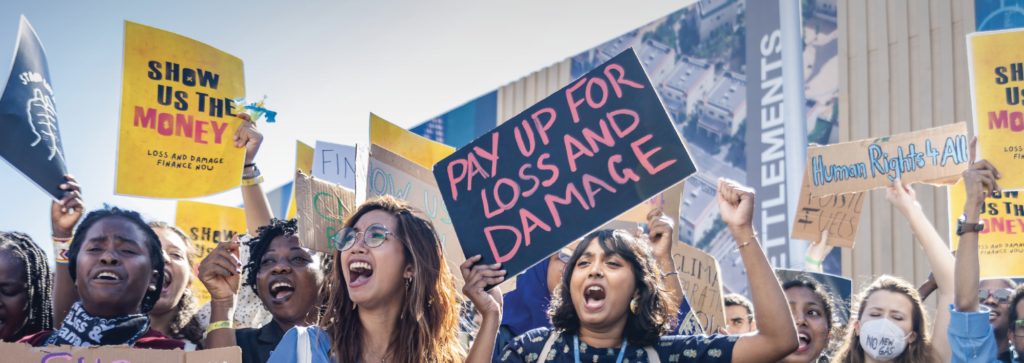
As the impacts of the climate crisis accelerate, States and businesses have human rights obligations to provide reparation and remedy to the communities most affected. Led by small island States, COP27 made historic progress by establishing the Loss and Damage Fund. This fund is designed to provide financial assistance to nations most vulnerable to and impacted by the effects of the climate crisis.
Now, countries are discussing how the fund will operate. Drawing on decades-long efforts to push financial institutions to deliver meaningful remedy for harms to which they contribute, CIEL is working to integrate environmental democracy into this new fund. This entails ensuring that the fund respects, promotes, and protects human rights and embeds the principles of environmental democracy (including access to information, participation, and remedy) within its governance structure. Doing so will ensure civil society, Indigenous Peoples, fenceline and frontline communities, and marginalized groups (such as women, persons living with disabilities, and youth) can actively participate at every stage of the negotiation, design, and implementation of the Loss and Damage Fund.
Making Oceans Off-Limits for Oil and Gas
CIEL works to protect oceans, marine ecosystems, and local communities from the impacts of offshore oil and gas activities. The increasing presence of offshore oil and gas operations, including coastal infrastructure and deepwater drilling, subsea pipelines, massive tankers, and widespread waste disposal, is putting more pressure on the world’s already-stressed oceans.
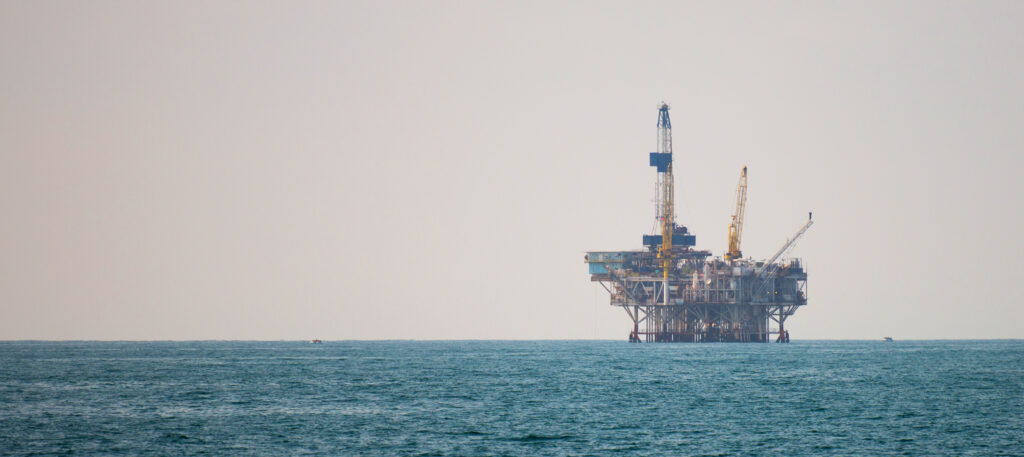
Oceans are the final frontier of the global campaign to “Keep It In the Ground.” As the risks associated with fossil fuel extraction become ever more apparent, and as resistance from frontline communities on land grows, oil and gas companies are increasingly moving their operations to deeper and more remote waters. To have any chance of keeping global temperature increase below 1.5°C, all expansion of oil and gas extraction must cease immediately.
Offshore oil and gas operations are dangerous and difficult to monitor and manage. A single offshore project can put multiple countries, communities, and ecosystems at risk throughout its life cycle — from exploration and drilling to transport and waste disposal. The dangers of offshore activity extend beyond leaks and blowouts. Everyday operations cause lasting harm through routine contamination and disturbances to habitats and livelihoods. These adverse impacts pose a heightened threat in areas with limited capacity to oversee activities or respond to incidents.
In addition to oil and gas extraction in the oceans, companies are now setting their sights on the seabed as a place to stash their carbon dioxide waste, based on the flawed premise that we can continue using fossil fuels indefinitely if we just “manage” their emissions. Offshore CCS — injecting carbon dioxide under the seabed — is being pushed at a never-before-seen scale, yet it presents uncalculated risks and untested monitoring challenges.
By bringing together communities engaged in the fight against offshore oil and gas expansion in their respective corners of the globe, CIEL connects movements, develops shared legal strategies, facilitates cross-regional knowledge exchange, and builds collective campaigns to amplify individual efforts. Together with partners around the world, we seek to make oceans everywhere off-limits to oil and gas activities.
Where we are building power to confront
offshore oil and gas expansion:

Avoiding Dangerous Climate Technofixes
As the climate emergency intensifies, geoengineering technologies are increasingly being promoted as necessary to supplement mitigation to counteract some of the worst effects of climate change.
CIEL and a global coalition of partners are working to ensure there is robust, international governance to restrict these dangerous technofixes. Ranging from ineffective and untested to profoundly dangerous and potentially catastrophic, geoengineering threatens people, Indigenous rights, wildlife, ecosystems, the global climate, and peace. Worryingly, calls for research into and governance of solar geoengineering are already diverting attention away from real solutions.
After a private, US-based start-up began unauthorized experimental solar geoengineering flights in Mexico this year, CIEL and partners from the Hands Off Mother Earth alliance raised the alarm in the media. The Mexican government then announced it would ban solar geoengineering experiments and deployment on its national territory. This step is supported by a de-facto global moratorium in place at the UN Convention on Biological Diversity (CBD) since 2010. CIEL supports the call from leading academics for a solar geoengineering non-use agreement that would forbid governments from financing the dangerous development of solar geoengineering technologies with public funds, and ban all outdoor experiments, patenting, and deployment.
Exposing the Risks of Carbon Capture and Storage
Advancing Environmental Justice in Louisiana
In the humid bayous of Louisiana, where cypress trees sway and brown pelicans fly, amid the aromas of gumbo and the rhythm of jazz, people are facing increased toxic emissions required for the production of even more petrochemicals and plastics.
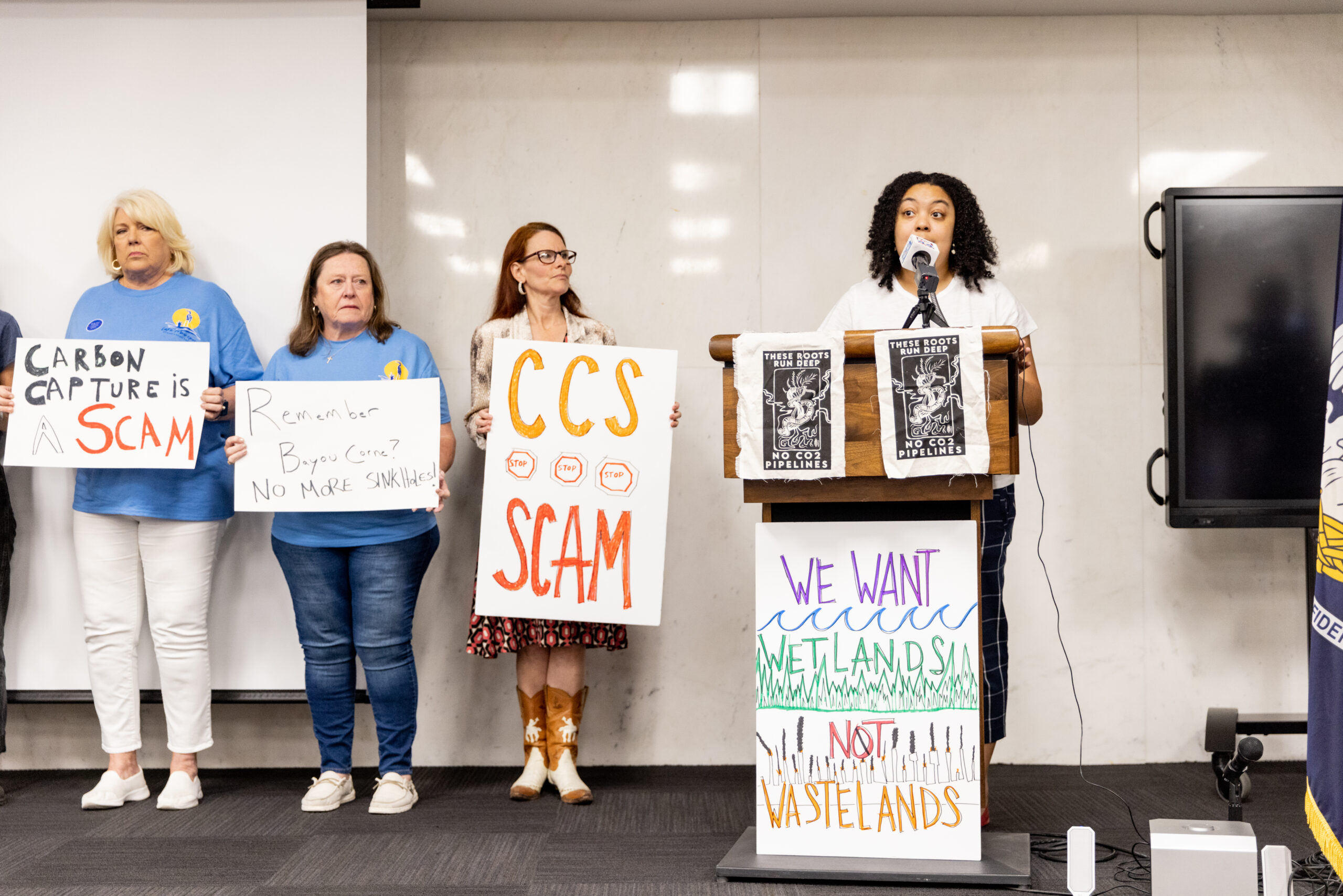
Promoting a deceptive narrative that greenhouse gas emissions can simply be filtered, piped, and then injected underground — known as carbon capture and storage (CCS) — this buildout across the Gulf South threatens to worsen environmental racism and increase the toxic burden on communities. This perpetuates a generations-old pattern: The fossil economy in Louisiana is deeply connected to the old plantation economy, vestiges of which still plague today’s policies and investments. Indeed, the buildout is primarily planned in close proximity to Black communities descended from people previously enslaved, often situated on or near ancestral burial grounds.
CIEL works with local communities and partners to build the analysis, research, and legal strategies deployed to defend communities against the plastics and chemicals buildout. Our reports, factsheets, and press releases have been used by local partners in the Louisiana Against False Solutions coalition in their efforts to resist carbon pipelines and injection wells in their communities — and anywhere. CIEL has partnered with local advocates to build grassroots power for community meetings, journalists’ workshops on the risks of CCS, meetings with local elected officials to advocate against carbon expansion, and the submission of public comments to regulators.
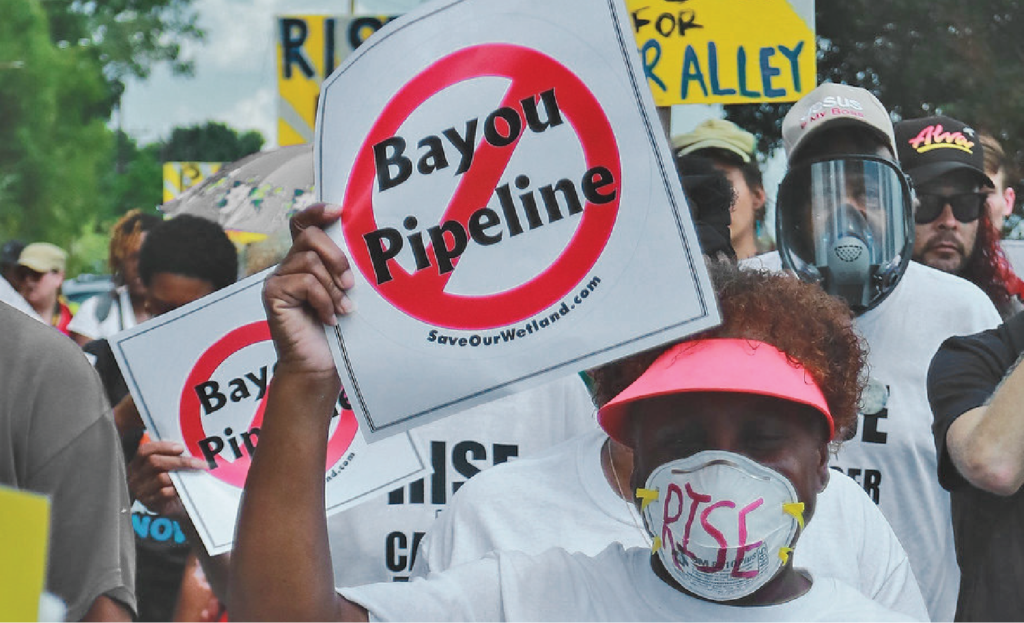
This year, CIEL facilitated the submission of over 20,000 public comments to the Environmental Protection Agency to prevent Louisiana from fast-tracking CCS permits. Not only did we expand understanding of the dangers and risks of carbon pipelines and wells, but Louisiana’s application to control carbon dioxide waste injection is currently delayed by nearly a year. This progress came on the heels of the nullification of permits for the Formosa Plastics Group in September 2022 after a lawsuit brought by one of CIEL’s partners, which halted construction of its planned plastics and petrochemical complex in St. James Parish, Louisiana.
Stopping Petrochemical Expansion
On February 3, 2023, a massive smoke plume darkened the sky when a Norfolk Southern train derailed near East Palestine, Ohio, spilling some of its toxic contents — including carcinogenic vinyl chloride — which were then intentionally set aflame. People living as far away as western Pennsylvania reported chemical smells and health issues. As the toxins spread into the land, air, and water, local residents had to fight for environmental monitoring, and officials are still only beginning to understand the impacts of this disaster.
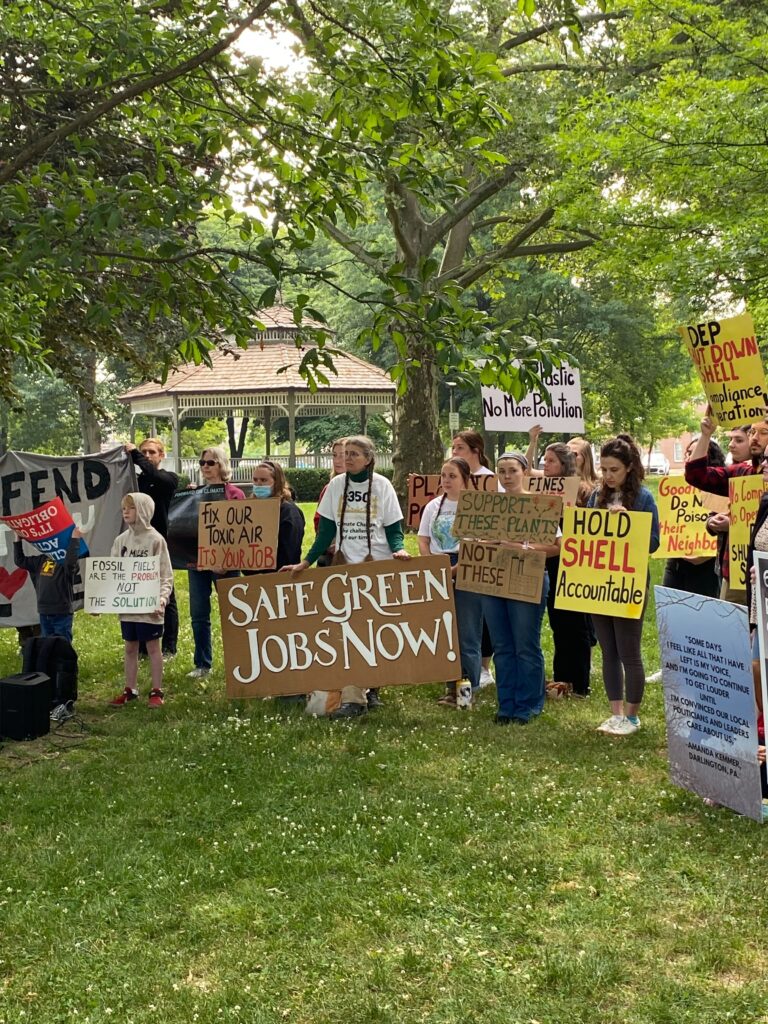
The East Palestine disaster is not an isolated incident — it is one of dozens of such major occurrences so far in 2023. According to some estimates, the US is currently averaging a “chemical accident” in production and transportation every two days. Petrochemicals are largely made from fossil fuels, and they serve as the building blocks of many products, like plastics, pesticides, and fertilizers. In the US alone, there are plans for the construction of more than 120 new petrochemical plants, predominantly near communities of color and economically disadvantaged areas, particularly in the Gulf Coast and Appalachia. CIEL is proudly partnering to stop this buildout with groups like Beyond Petrochemicals, the People Over Petro and Permian Gulf Coast Coalitions, and the Break Free From Plastic movement.
We are also working to connect the dots to reveal a full picture of the harms to frontline communities. Together, we are exposing the human and environmental impacts of industrial addition to petrochemicals — especially how risky and toxic they are. Our campaigners are also building tools and resources with frontline communities to protect their rights and futures by halting this planned expansion in its tracks.
